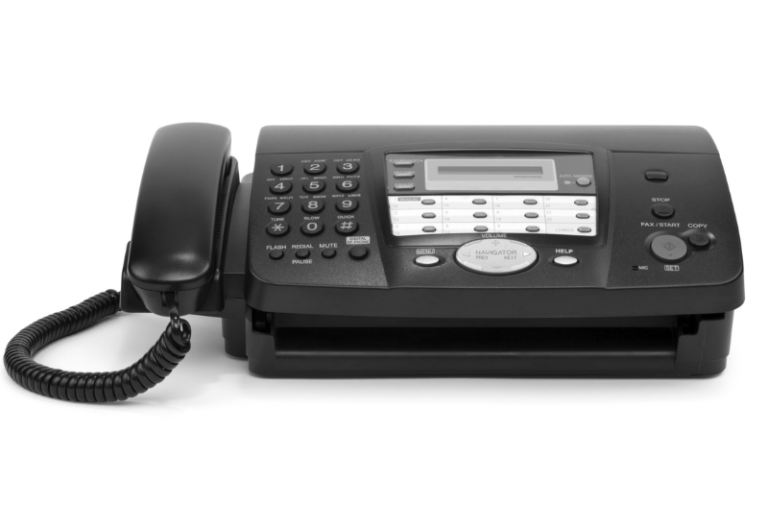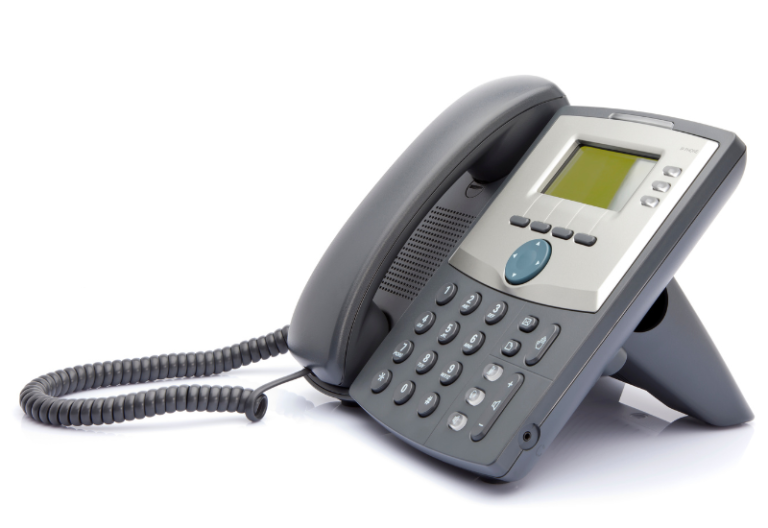Deciding between a landline and a VoIP system depends on whether you’d like to make long-distance calls or reach remote areas with weak or no Internet access. VoIP can be a good option for those who need to make faster and more efficient calls.
On the other hand, landlines can be a better alternative for ensuring uninterrupted communications, especially during emergencies.
Let’s examine the difference between VoIP and landline to identify the best approach for your business.
Table of Contents

VoIP vs Landline: What’s the Difference?
VoIP, or Voice over IP, uses the Internet for phone calls and video conferencing. A landline uses an analog telephone to establish a connection, transmitting audio signals through conventional telephone lines.
With Voice over IP, you can take advantage of other calling features that a landline can’t offer, including setting up virtual phone numbers for geographic flexibility. With a landline, you’re limited to doing basic calls. Plus, calling an international number means incurring substantial per-minute charges.
VoIP implementation vs. landline installation
A local phone company installs a traditional landline phone through wires and cables interconnected via a public switched telephone network (PSTN). Companies must also set up an on-site Private Branch Exchange (PBX) system to transfer calls from one user to another.
VoIP, on the other hand, depends on your Internet access to make and receive calls. Enabling your VoIP service means connecting your phone or adapter to your router via an Ethernet cable. Also, it’s best to use a high-speed broadband connection like fiber optic or cable internet for optimal call quality and reliability.

VoIP Features and Functionality Versus Landline
Unlike landlines, VoIP offers advanced and essential communication features that allow you to make calls without dialing out.
Let’s compare the features of VoIP vs. traditional phones and see which option best suits the needs of a modern business.
Ease of use
With VoIP, you can use more than one device (iPhone or Android) as opposed to a landline that needs one specific phone line to connect to another. It also takes less time to set up as it primarily involves software configurations instead of establishing physical infrastructure like cabling or installing routers and network switches. It runs online and on the cloud, so installing or configuring servers and cables is unnecessary.
Software integration
VoIPs are more flexible and scalable than traditional landlines. These allow seamless integration with your existing customer relationship management (CRM) system or other business software to streamline your communications. Landlines are limited to calls, so these traditional phone lines don’t offer software integration.
Call quality
Unlike VoIP services that offer crystal clear calls, landlines lack good audio quality. Moreover, the noise and time lag on the line can sometimes cause audio distortions, making the voice from the other line inaudible. This can be frustrating for businesses taking calls from clients and customers. On the contrary, VoIP services exhibit better audio clarity thanks to high-speed Internet connections.
Security and privacy
With VoIP, calls are transmitted via the Internet, making your conversations vulnerable to eavesdropping, interception, and other cybersecurity threats. A HIPAA-compliant VoIP service provider utilizes encryption to mask calls, recordings, and messages. Landlines don’t rely on wireless connections, making them less prone to these types of security threats.
Advanced messaging
VoIP service providers offer advanced call, video conferencing, and messaging features that landlines don’t provide. These are also designed for upgrades whenever you need to replace your entire system or add new components.
Here are some of the advanced VoIP features:
- Caller ID
- Voice-to-text transcription
- Online call recording
- Video conferencing
- Auto attendant (transfer calls automatically)
- Call screening and blocking
- VoIP faxing

VoIP and Landline Cost Comparison
Generally, VoIP is less expensive than a telephone service because it relies on your Internet connection and the devices you already have. This means you don’t need additional hardware to run your VoIP systems. Instead, you’ll be required to download and install a Voice over IP application or software on your phone or computer.
In some instances, you’ll only need IP phones and routers, which are available at affordable prices. Some VoIP providers also offer unlimited calling plans at competitive rates.
Apart from the high installation fees, landlines often involve:
- Equipment fees
- Additional line fees
- Long-distance charges
- Add-on fees for Caller ID, call waiting, and voicemail
Landline or VoIP: The Best Business Phone System
A modern business requires a reliable phone system that can seamlessly integrate with other communication platforms. Additionally, it should be flexible and scalable enough to adapt to the needs of a growing business.
With VoIP and landline, the latter lacks the capability to match the former’s flexibility, offering businesses the option to add or remove lines as necessary. In this regard, choosing a VoIP system is better.
While flexible and fast, VoIP relies heavily on your Internet connection, which poses a problem during emergencies and power interruptions. On the other hand, landlines can remain operational regardless of Internet disruptions or power outages, making them indispensable for establishing communications in times of crisis.
However, a VoIP system remains the best choice for businesses since it offers unmatched scalability. Also, the long-term benefits of setting up a VoIP far outweigh the cost of your initial investment.
With iFax, you can set up a VoIP communications system with faxing, calling, messaging, and teleconferencing capabilities.
Experience its benefits firsthand. Request a demo or select a plan.







